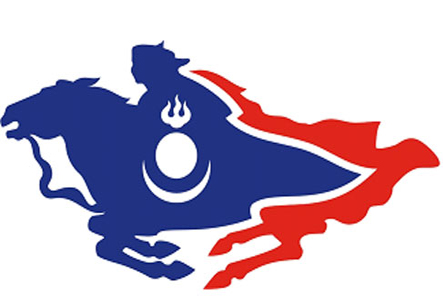Mongolia today has a new prime minister in Norov Altankhuyag (Норовын Алтанхуяг), the leader of the Democratic Party (Ардчилсан нам, Ardchilsan Nam).![]()
The landlocked central Asian country of just under 3 million, nestled between Russia and China, is undergoing somewhat of a mining-based boom these days — for decades, it was locked in the socialist shadow of the Soviet Union, but today is riding the crest of China’s state capitalist wave and its capital, Ulan Bator, is being transformed like many of China’s provincial capitals from dusty backwater to a thriving boomtown. Its largest coal mine, Tavan Tolgoi, is due to be listed on Hong Kong- and London-based stock exchanges next year, and investors are already looking to the next administration for signs that it will be business-friendly:
Over the next four years, the country’s vast mineral wealth will be exploited and the state coffers will begin to fill, putting the new government in a strong but testing position.
“The importance of this next term cannot be overstated,” says Travis Hamilton, founder of the Khan Mongolia Equities Fund. “The stakes are a lot higher now, and the actions over the next four years will determine the coming decades. Mongolia is still heavily dependent on foreign investment, but when they run at capacity they will be able to go on their own. The country is on the precipice of financial independence.”
The appointment comes after weeks of coalition talks following the June 28 election of the 76 members to Mongolia’s State Great Khural (Улсын Их Хурал, Ulsyn Ikh Khural). In that election, the pro-free market Democratic Party won 31 seats to just 25 for the ruling Mongolia People’s Party (Монгол Ардын Нам, Mongol Ardiin Nam), formerly the communist party that ran Mongolia from 1921 to 1996.
A third party, formed in 2010 by former president Nambaryn Enkhbayar, the Mongolian People’s Revolutionary Party (Монгол Ардын Хувьсгалт Нам, Mongol Ardyn Khuvsgalt Nam), won 11 seats, and will join the coalition with the Democratic Party. That’s somewhat, troubling, in part because Enkhbayar himself was just sentenced to four years in prison last week on corruption charges.
Nonetheless,Reuters reports that Mongolia’s new leaders are taking a much more favorable position toward foreign investment:
In a note to clients, private equity firm Origo Partners called [Altankhuyag’s] confirmation as the country’s 27th prime minister “a positive development”, adding it viewed Enkhbayar’s conviction “a landmark event” for stronger anti-corruption regulatory enforcement.
The DP’s moderate stance will be a departure from the MPP, which had demanded to renegotiate mining contracts with a view to limiting foreign ownership of the country’s mineral wealth.
One of the targets was the massive Oyu Tolgoi copper and gold project, which is set to start production later this year and is 66 percent owned by Rio Tinto and Turquoise Hill Resources, with the remaining stake held by the Mongolian government.
“The newly established government will welcome foreign investment, we will guarantee them a stable legal environment we will try to fulfil our party agenda,” MP Chimed Saikhanbileg told Reuters in a telephone interview.
It must be added that Mongolia’s Democratic Party has, hands-down, the most awesome logo of any global political party:

